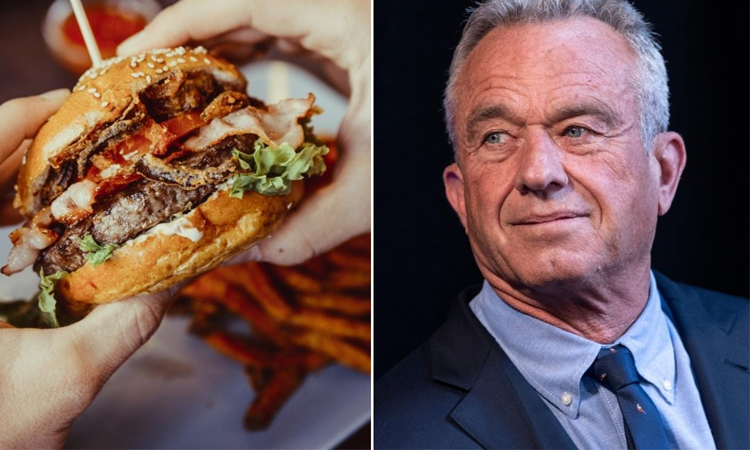News Flash
News Flash

WASHINGTON, Sept 10, 2025 (BSS/AFP) - US Health Secretary Robert F. Kennedy Jr. on Tuesday unveiled the Trump administration's long-awaited roadmap to tackle chronic disease, calling for better nutrition, tighter scrutiny of medical advertising, and even a new push to boost fertility.
Conspicuously absent, however, were concrete proposals to directly restrict ultra-processed foods or pesticides -- long priorities of Kennedy's Make America Healthy Again (MAHA) movement. The omissions are viewed as wins for the food and agriculture industries.
"There has never been an effort like this across all the government agencies," said Kennedy during a Washington event where he released the plan, calling chronic illness "an existential crisis for our country."
President Donald Trump later signed a memorandum directing agencies to step up enforcement of existing rules on online pharmaceutical advertising to curb misleading claims, backing one of the report's priorities. Kennedy, however, had previously called for an outright ban on drug marketing.
Experts also criticized what they called the vague and voluntary nature of the "Make Our Children Healthy Again" strategy, a follow-up to an initial assessment published this spring.
"The administration is trying to have it both ways," Scott Faber, senior vice president of government affairs at the nonprofit Environmental Working Group, told AFP.
"In May, they described a hellscape of junk food and toxic exposures that put all our children at risk. In September, they are calling for more studies and plans and proposals."
The new 20-page report highlights many of Kennedy's signature causes: reviewing fluoride in drinking water, revisiting childhood vaccine schedules and expanding parental opt-outs, and raising doubts about antidepressants.
Many of these positions sit well outside mainstream medicine, particularly his take on vaccines.
Other eye-catching ideas include a MAHA fertility education campaign -- reflecting right-wing anxieties over declining birth rates -- and a call to probe "electromagnetic radiation," apparently a reference to cellphone use, though it is not spelled out.
The first report was widely ridiculed after it was found to contain numerous fabricated citations, apparently from using AI tools. The new paper avoids that pitfall by omitting citations altogether.
- Deregulation push -
Critics said the plan was thin on specifics, even for areas that enjoy broad consensus, like tackling America's junk-food addiction.
One section calls for a government-wide definition of ultra-processed foods, without saying what should follow.
"This is such an opportunity. I sure wish they had taken it," Marion Nestle, a professor emerita of nutrition at New York University, told AFP.
It also says the government wants to boost breastfeeding rates, reduce animal testing, and promote innovation in the sunscreen market, where the United States lags behind many countries.
On the use of pesticides, the report on the one hand evokes the possible use of "precision technology" to "decrease pesticide volumes," while elsewhere it calls for deregulation to help bring "chemical and biologic products to protect against weeds, pests, and disease" to market faster.
It comes as Trump's Environmental Protection Agency is bringing a new wave of pesticides to market despite experts warning the proposed substances constitute harmful so-called "forever chemicals."
Zen Honeycutt, a health activist aligned with the MAHA movement, did not hide her disappointment at the fact pesticides were barely mentioned -- but said she did not blame Kennedy.
"It was not as strongly worded about pesticides as it would have been had it been only Bobby writing the report," she told AFP, adding this was a "glaring example of chemical company corruption."
Similarly, even as the MAHA report urges higher birth rates, the EPA's weakening of air-pollution standards risks undermining fertility, given the well-established harms of contaminants to sperm and egg health.